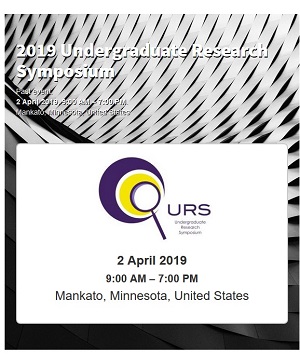Lie Detection in Interviews
Location
CSU Ballroom
Start Date
2-4-2019 2:00 PM
End Date
2-4-2019 3:30 PM
Student's Major
Psychology
Student's College
Social and Behavioral Sciences
Mentor's Name
Emily Stark
Mentor's Department
Psychology
Mentor's College
Social and Behavioral Sciences
Description
The majority of people might think they are experts at telling a truth from a lie. However, research has indicated this is not always the case, and people in general are no better than chance at accurately detecting deception. The aim of this research study was to see if participants would be able to distinguish truth tellers from liars in a professional environment. Many employers rely on interviews to make hiring decisions, but candidates who lie could gain an unfair advantage. Therefore, understanding deception detection in the specific context of employment interviews is an important topic. In the current study, participants viewed videos of honest and deceptive interview responses, rated the response as a truth or a lie, and also rated the subject on their likeability, trustworthiness, and how likely they would be to hire this individual. Initial findings indicate that participants were unable to recognize deceit from truth. Interestingly, they were also more likely to hire the lie-tellers as compared to truth-tellers. Current data collection is focused on replicating these findings and understanding what cues participants are using to determine whether statements are true or false, to gain more insight into how they are responding to these interview responses. These findings would indicate that interviewers may be more likely to believe deceitful candidates, potentially leading them to hire the wrong candidate.
Lie Detection in Interviews
CSU Ballroom
The majority of people might think they are experts at telling a truth from a lie. However, research has indicated this is not always the case, and people in general are no better than chance at accurately detecting deception. The aim of this research study was to see if participants would be able to distinguish truth tellers from liars in a professional environment. Many employers rely on interviews to make hiring decisions, but candidates who lie could gain an unfair advantage. Therefore, understanding deception detection in the specific context of employment interviews is an important topic. In the current study, participants viewed videos of honest and deceptive interview responses, rated the response as a truth or a lie, and also rated the subject on their likeability, trustworthiness, and how likely they would be to hire this individual. Initial findings indicate that participants were unable to recognize deceit from truth. Interestingly, they were also more likely to hire the lie-tellers as compared to truth-tellers. Current data collection is focused on replicating these findings and understanding what cues participants are using to determine whether statements are true or false, to gain more insight into how they are responding to these interview responses. These findings would indicate that interviewers may be more likely to believe deceitful candidates, potentially leading them to hire the wrong candidate.
Recommended Citation
Curtis, Danielle. "Lie Detection in Interviews." Undergraduate Research Symposium, Mankato, MN, April 2, 2019.
https://cornerstone.lib.mnsu.edu/urs/2019/poster-session-B/12




